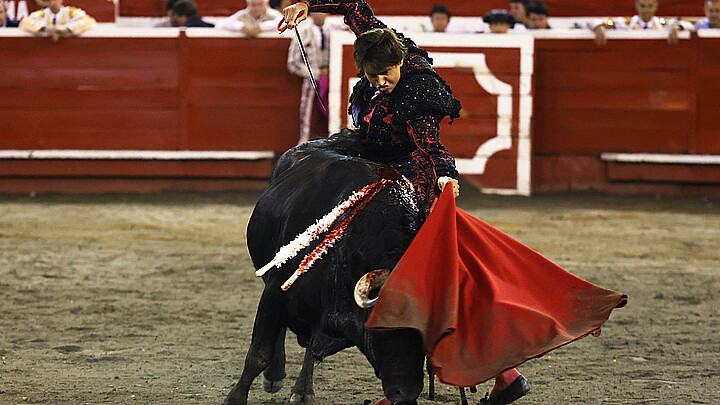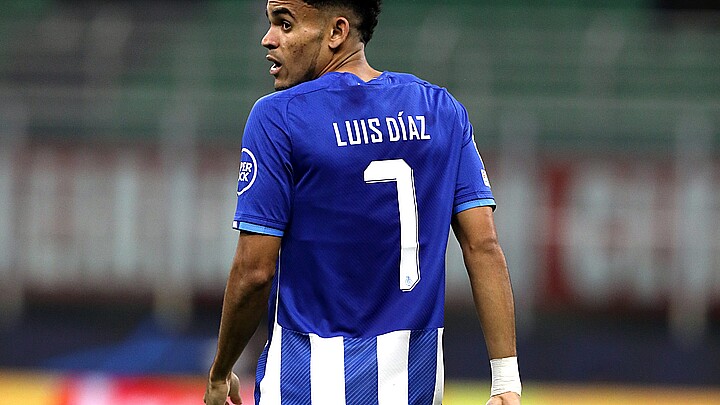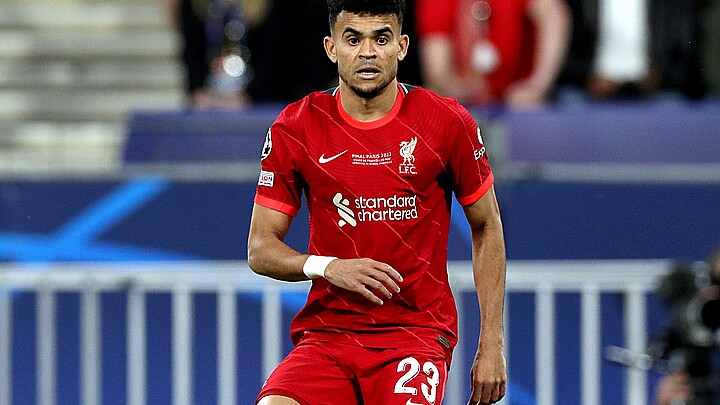Sports
Luis Diaz: Colombian armed forces search for Liverpool soccer player's kidnapped father
The Colombian military mobilized more than 120 soldiers throughout the northern region of Colombia on Sunday to assist law enforcement agents searching for Luis Manuel Diaz after reports surfaced that armed gunmen kidnapped him and his wife

October 30, 2023 12:46pm
Updated: October 30, 2023 12:46pm
An unprecedented search by Colombia’s armed forces are underway for the father of Liverpool forward Luis Diaz, with the government offering a hefty reward for information leading to his rescue.
The Colombian military mobilized more than 120 soldiers throughout the northern region of Colombia on Sunday to assist law enforcement agents searching for Luis Manuel Diaz after reports surfaced that armed gunmen kidnapped him and his wife.
The Liverpool soccer player's mother, Cilenis Marulanda, was located in Barrancas on Saturday. Amid the crisis, Diaz did not play on Sunday when it defeated Nottingham Forest. The Colombian government said its military apparatus has deployed two motorized platoons, established roadblocks, and is currently using helicopters and unmanned aircraft to locate his father.
So far, Diaz’s fans and his fellow Colombians and Britons are in the dark as to what sparked the tragic event.
Government officials have not revealed any information about the disappearance, and so far, the only information has come from Colombian media, which reported that Diaz's parents were taken by armed motorcyclists at a gas station in their home town of Barrancas in the northern part of the country.
The incident has sent shockwaves through the sports community, igniting an outpour of support from Diaz’s colleagues, fans and even Colombia’s president.
The Colombia Football Federation (FCF) tweeted a demand for the gunmen to release of Diaz's father “without conditions” adding, “We ask the captors of Luis Manuel Diaz to release him now. Football is peace. Lucho, we are with you. Colombia is with you.”
FIFA President Gianni Infantino also rallied behind Diaz on his Instagram page, writing, “On behalf of Fifa and the global football community, I would like to extend our support and prayers to Luis Diaz, his family and his friends in these difficult times,"
Colombian President Gustavo Petro assured his countrymen that amid the crisis that, “all the public forces have been deployed" to rescue Diaz's father.
Colombian officials are also trying to recruit the assistance of the public. To encourage public support, General William Rene Salamanca, Director of the National Police announced a reward of “up to 200 million pesos,” an estimated $48,000 USD, for information.
Government officials are also keeping in close contact with Diaz. The country’s attorney general said he has spoken directly to the soccer player twice to offer him progress reports on the rescue effort.
According to Barbosa, police believe his father may have been cross border kidnapped into Venezuela, which could force direct involvement by the Colombian president.
If true, Diaz’s case would not be the first involving cross border kidnapping.
ADN has reported on the cross border kidnapping and unlawful imprisonment of various American tourists who were also snatched by masked gunmen who too from the Colombian border into the communist country.
Among those kidnapped last year was Los Angeles Deputy Public Defender Eyvin Hernández, who the U.S. State Department has designated as wrongfully detained by the Venezuelan Maduro regime.
Hernández, a 44-year old Californian was unlawfully kidnapped and taken into custody by Maduro’s military police in the mountains on Colombia-Venezuelan border when he and a friend purportedly, inadvertently crossed into the communist country’s territory by accident.
Hernández has since told his father in WhatsApp conversations from his cell that he and his friend did not cross into Venezuelan territory but were instead kidnapped after they were pressured to pay a cash ransom to armed gunmen, and were hooded and taken prisoner on pickup trucks after they did not pay the money.
In the instance case, the Colombian media has released unverified CCTV footage, depicting men on motorcycles trailing Diaz's parents’ car, suggesting they were targeted.
Law enforcement agents have not said if the family has been contacted with any ransom demands, but anti-extortion and anti-kidnapping units have been mobilized to the area to find the soccer player’s father.
Technically, the number of kidnappings in Colombia has dropped since the peak of its drug wars in the 1990s and 2000, a time that marked the kidnapping of 3,500 by criminal enterprises.
That number decreased to the low hundreds until last year when it doubled from 77 in the first six months of 2022 to 161 in the same period in 2023, according to Colombia's ministry of defense.
Most of the recent kidnappings are for ransom as opposed to being directly related to cartel and criminal gang activity.
Kidnappings have risen along Colombia’s border with Venezuela, where Hernandez and other Americans have been abducted. Gangs in that area also engage in smuggling and human trafficking, often targeting tourists and wealthy individuals who ransom them for money.









